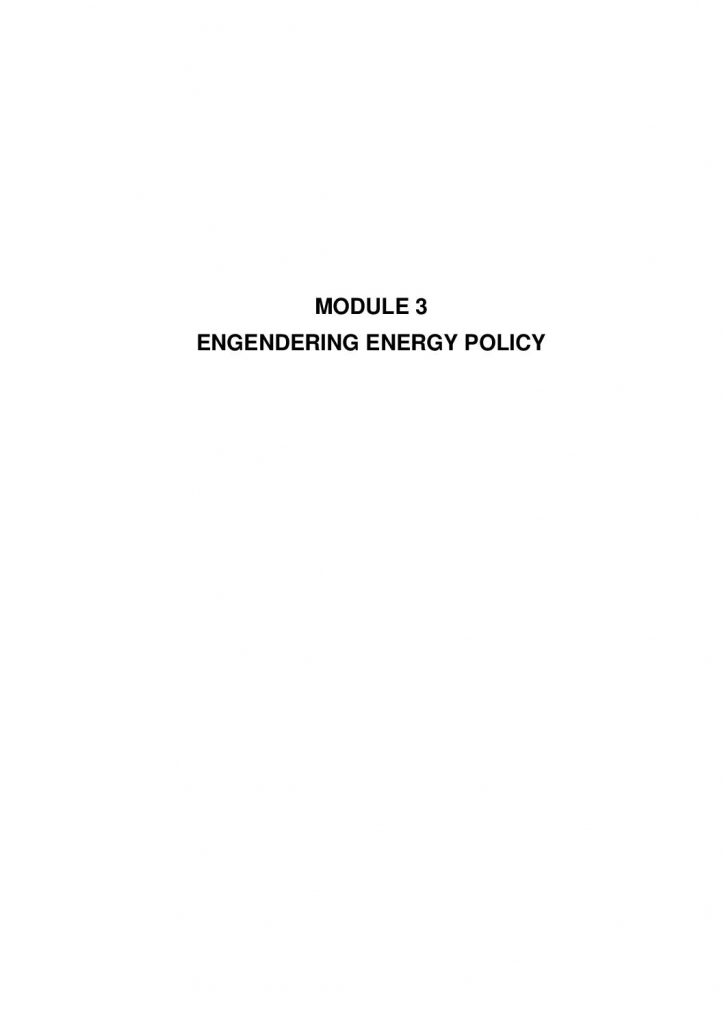Gender and energy are a relatively new area of international sustainable development activities. Awareness about gender issues in energy policy is beginning to emerge with ground breaking attempts to engender energy policy in South Africa and Uganda. In part, these efforts have been driven by the 1995 Beijing Platform for Action which upon signature required governments to mainstream gender in all sections of the economy. The energy sector is not immune to the process of gender mainstreaming. Therefore, the demand for information about engendering energy policy is growing. This Module is written to answer to the requirements of policy makers in the energy sector and those who try to influence national energy policy in developing countries.
By offering relevant and up-to-date information about gender and energy issues, policy processes and most important the relations between these this Module gives an overview of the process of engendering energy policy. The information is presented in the form of discussion points, exercises and real-life case studies. During the course of this Module you will collect information to help you start engendering the energy policy in your own country.

Follow us on: